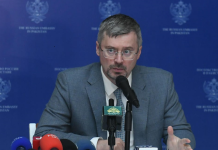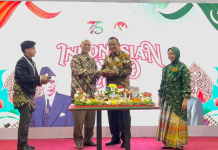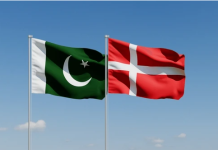Chargé d’Affaires Peter Emil Nielsen Visits the Remote Kailash Valleys of Chitral
CHITRAL, Pakistan – In the breathtaking yet vulnerable Kailash Valleys of Chitral, where the effects of climate change are a daily reality, Denmark has reaffirmed its steadfast support to Pakistan’s efforts toward climate resilience and sustainable development. 🇩🇰
Mr. Peter Emil Nielsen, Chargé d’Affaires a.i. of the Embassy of Denmark in Pakistan, visited the remote valleys to observe firsthand the progress of Denmark’s Sustainable Development Goals (SDG) project, implemented in collaboration with the Aga Khan Foundation (AKF). The project focuses on empowering local communities to build resilience against the severe impacts of climate change — including flash floods, landslides, and unpredictable weather patterns that have increasingly threatened the livelihoods of mountain communities.
During his visit, Mr. Nielsen interacted with community leaders, women entrepreneurs, and farmers who are at the heart of these resilience-building initiatives. He commended their courage and determination to adapt to the harsh climatic realities and emphasized Denmark’s long-term commitment to supporting Pakistan’s most climate-vulnerable regions.
“What we see here in Chitral is the incredible strength and unity of communities determined to overcome climate challenges,” said Mr. Nielsen. “Denmark stands with Pakistan in creating sustainable and climate-resilient systems that ensure a better future for all.”
A Partnership Rooted in Sustainable Development and Human Empowerment
Denmark and Pakistan share a long history of cooperation in development, renewable energy, education, and climate action. The ongoing SDG-focused partnership reflects Denmark’s vision of supporting Pakistan’s transition toward a greener, more inclusive economy.
Through the Aga Khan Foundation, the project in the Kailash Valleys has successfully introduced community-based climate adaptation measures — including improved irrigation systems, reforestation programs, renewable energy solutions, and women-led sustainability initiatives. These efforts not only protect local ecosystems but also promote economic stability and food security.
Looking Ahead: Building Food Security and Climate-Resilient Agriculture
Building upon the project’s achievements, Denmark is now preparing to launch a new initiative aimed at strengthening food security in Chitral and surrounding regions. This next phase will focus on developing climate-resilient agricultural systems, helping farmers adopt innovative and sustainable practices to secure livelihoods despite the worsening impacts of floods and changing weather conditions.
The initiative represents a crucial step for communities still recovering from devastating floods and cloudbursts that severely damaged agricultural lands and disrupted food supply chains across Pakistan. By integrating modern agricultural techniques with traditional knowledge, Denmark’s support will help communities protect crops, conserve soil and water, and sustain food production even under adverse conditions.
A Symbol of Friendship and Shared Responsibility
Mr. Nielsen’s visit underscores the deepening friendship between Denmark and Pakistan, built on shared values of sustainability, partnership, and people-centered development. His engagement in Chitral reflects Denmark’s hands-on approach — focusing on local empowerment and long-term resilience rather than short-term aid.

As Pakistan continues to face the mounting challenges of climate change, Denmark’s collaboration stands as a model of international solidarity — one that bridges distance through shared humanity and purpose.
“We are not only investing in projects,” Mr. Nielsen remarked. “We are investing in people — their resilience, their knowledge, and their future.”
In the heart of the majestic Kailash Valleys, Denmark’s partnership with Pakistan is sowing seeds of hope — nurturing stronger communities, greener landscapes, and a sustainable tomorrow for generations to come.
BY: The Times Union








